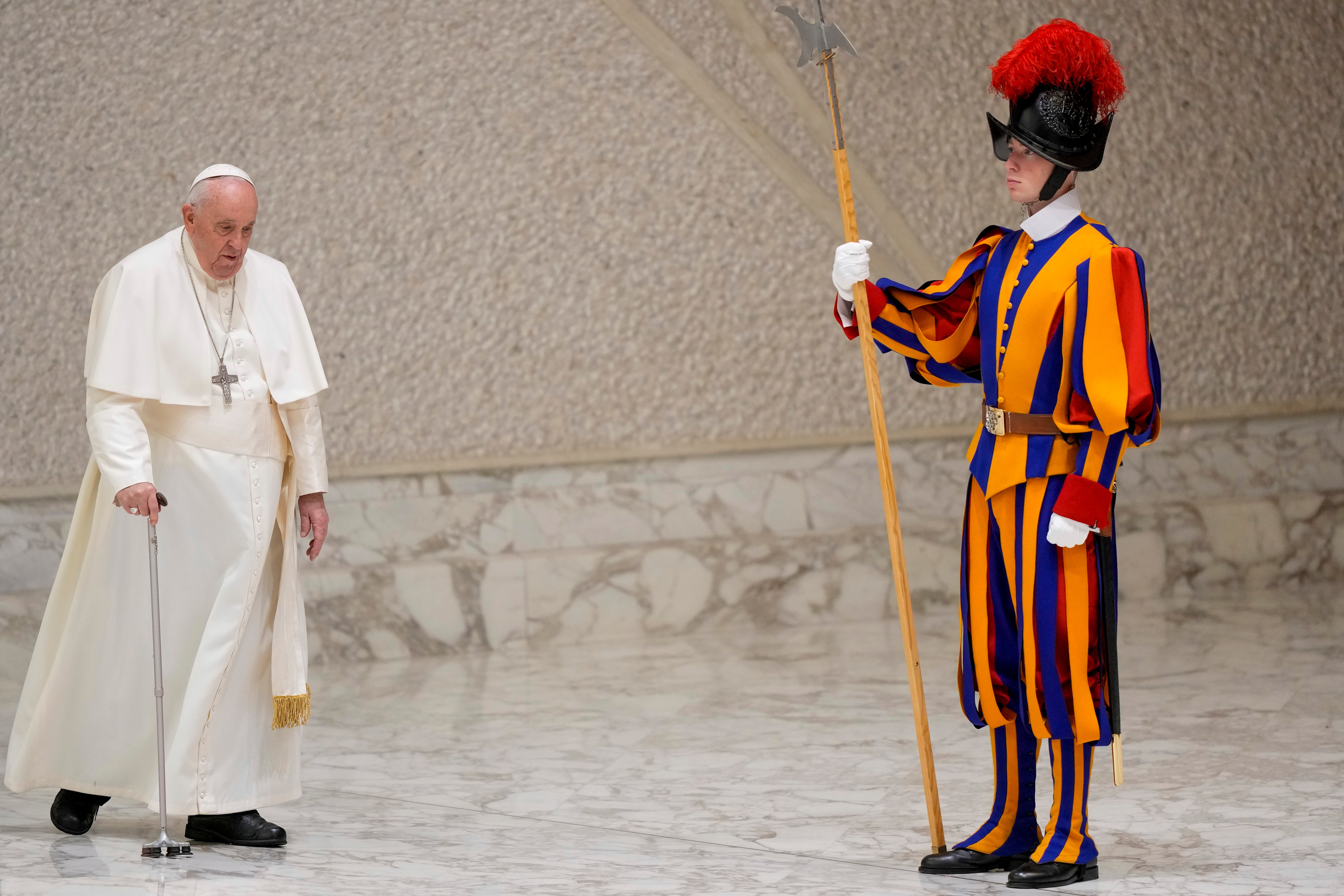Pope nationalizes Vatican assets, property in new reform
Pope Francis has essentially nationalized all assets and property owned by Vatican departments and affiliated institutions

Your support helps us to tell the story
From reproductive rights to climate change to Big Tech, The Independent is on the ground when the story is developing. Whether it's investigating the financials of Elon Musk's pro-Trump PAC or producing our latest documentary, 'The A Word', which shines a light on the American women fighting for reproductive rights, we know how important it is to parse out the facts from the messaging.
At such a critical moment in US history, we need reporters on the ground. Your donation allows us to keep sending journalists to speak to both sides of the story.
The Independent is trusted by Americans across the entire political spectrum. And unlike many other quality news outlets, we choose not to lock Americans out of our reporting and analysis with paywalls. We believe quality journalism should be available to everyone, paid for by those who can afford it.
Your support makes all the difference.Pope Francis has essentially nationalized all assets and property owned by Vatican departments and affiliated institutions, declaring them to be sovereign patrimony owned by the Holy See and not any individual or office.
The action outlined in a new law published Thursday marks Francis' latest initiative to centralize Vatican assets so they can be managed properly, following years of mismanagement that led to huge losses and, prosecutors allege, criminal wrongdoing.
Francis previously stripped the Vatican’s secretariat of state of its 600 billion-euro ($635 billion) portfolio and ordered the assets transferred to the Vatican’s patrimony office following a scandal involving a 350 million-euro investment in a London property.
Vatican prosecutors have charged 10 people, including a cardinal, of defrauding the Holy See of tens of millions of euros through the London venture.
The new law makes clear that the Holy See owns any asset, security or property owned or acquired by a Vatican office or affiliated institution. This “ecclesiastic public property” is “entrusted” to individual departments to use but is destined for the universal needs of the church to fulfill its mission, the law states.
In previous stages of Francis’ financial reforms, the Vatican ordered all Vatican offices to submit to standardized annual budgeting and accounting measures. Individual offices, or congregations, were allowed to operate in financial silos before then.
The pope also centralized and overhauled the Vatican's investment strategy to ban speculative investments and to prioritize prudent investing in industries that promote the common good.